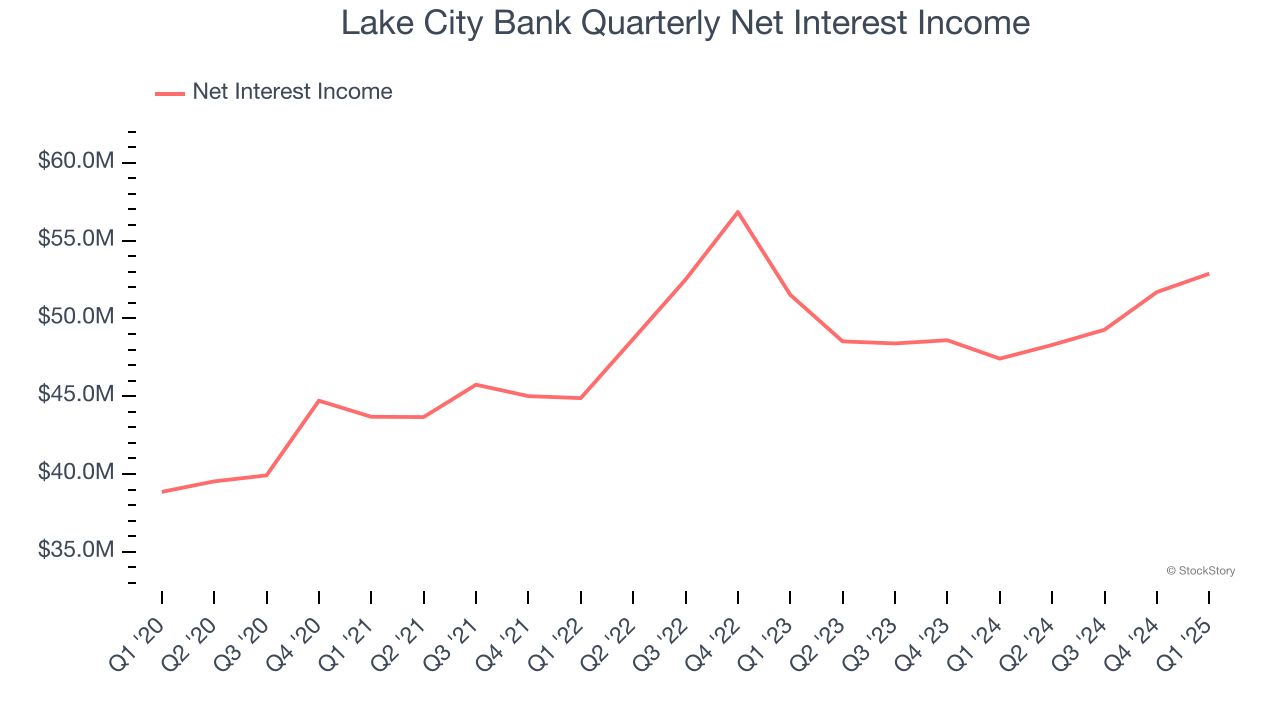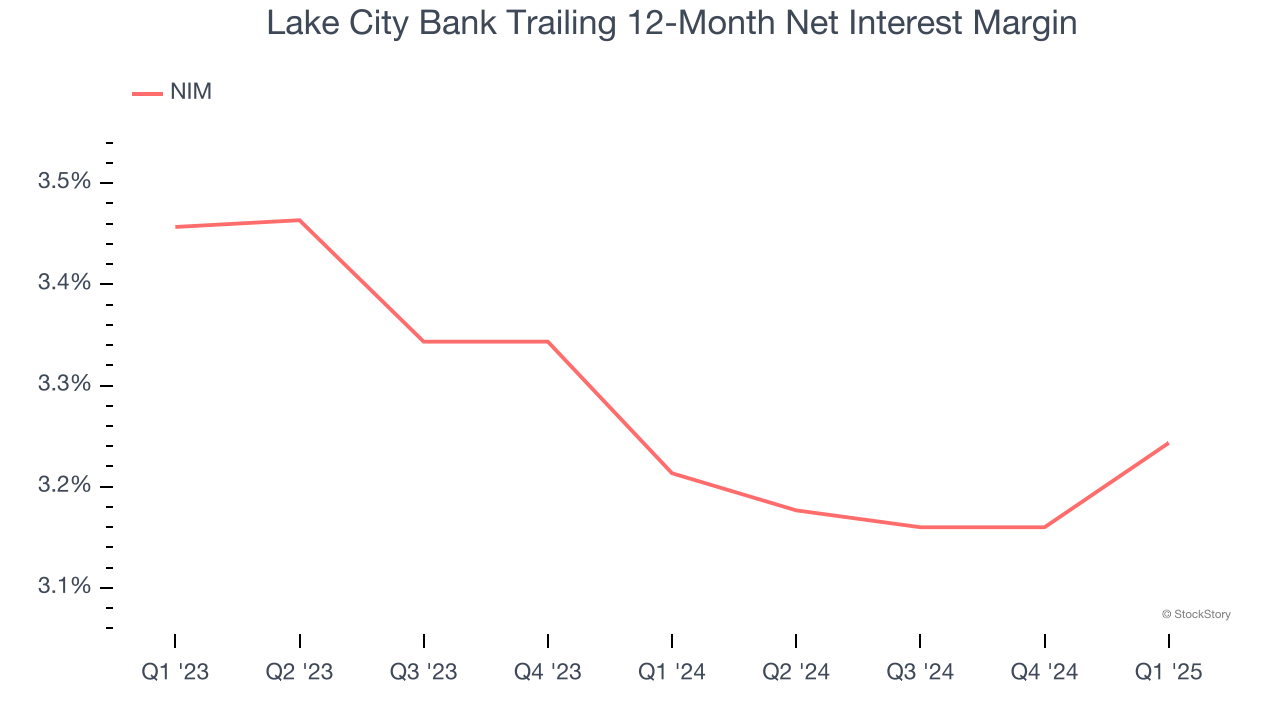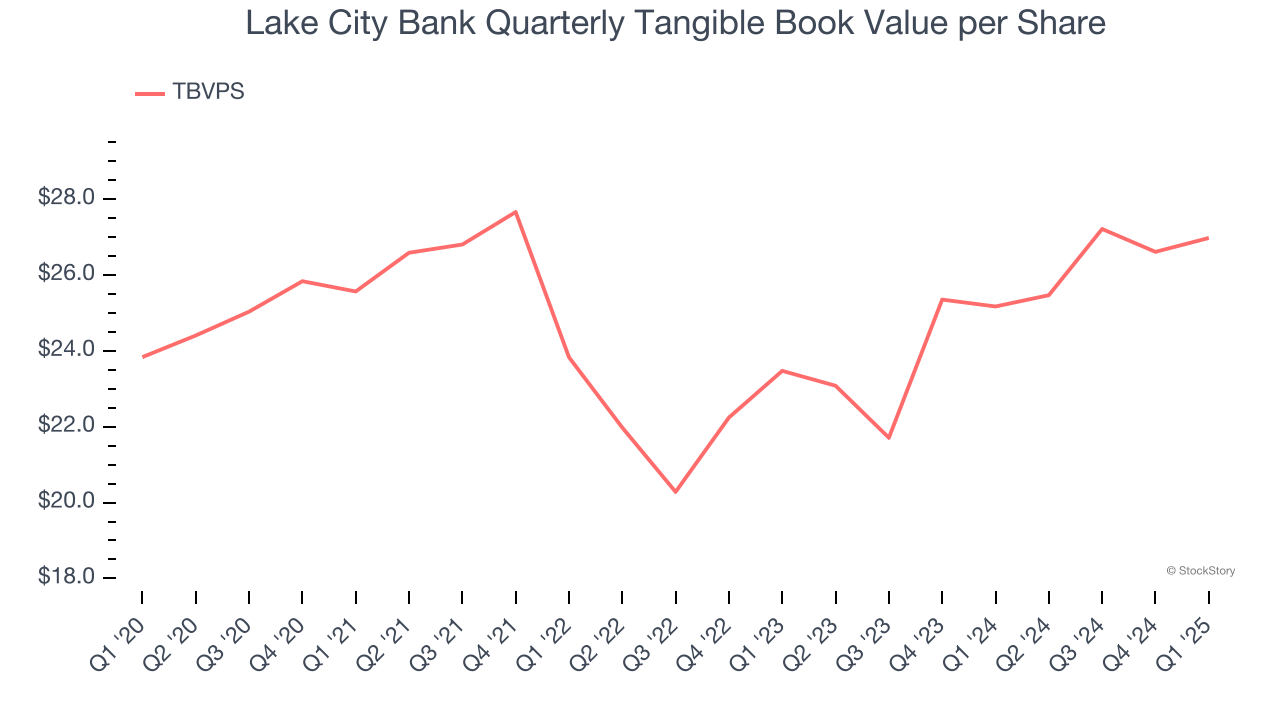
Lake City Bank currently trades at $65.70 per share and has shown little upside over the past six months, posting a small loss of 1.4%. The stock also fell short of the S&P 500’s 7.6% gain during that period.
Is now the time to buy Lake City Bank, or should you be careful about including it in your portfolio? See what our analysts have to say in our full research report, it’s free.
Why Is Lake City Bank Not Exciting?
We're swiping left on Lake City Bank for now. Here are three reasons why we avoid LKFN and a stock we'd rather own.
1. Net Interest Income Points to Soft Demand
Markets consistently prioritize net interest income growth over fee-based revenue, recognizing its superior quality and recurring nature compared to the more unpredictable non-interest income streams.
Lake City Bank’s net interest income has grown at a 4.8% annualized rate over the last four years, worse than the broader bank industry. Its growth was driven by an increase in its net interest margin, which represents how much a bank earns in relation to its outstanding loans, as its loan book shrank throughout that period.

2. Net Interest Margin Dropping
Net interest margin represents how much a bank earns in relation to its outstanding loans. It’s one of the most important metrics to track because it shows how a bank’s loans are performing and whether it has the ability to command higher premiums for its services.
Over the past two years, Lake City Bank’s net interest margin averaged 3.2%. Its margin also contracted by 21.3 basis points (100 basis points = 1 percentage point) over that period.
This decline was a headwind for its net interest income. While prevailing rates are a major determinant of net interest margin changes over time, the decline could mean Lake City Bank either faced competition for loans and deposits or experienced a negative mix shift in its balance sheet composition.

3. Substandard TBVPS Growth Indicates Limited Asset Expansion
For banks, tangible book value per share (TBVPS) is a crucial metric that measures the actual value of shareholders’ equity, stripping out goodwill and other intangible assets that may not be recoverable in a worst-case scenario.
To the detriment of investors, Lake City Bank’s TBVPS grew at a tepid 7.2% annual clip over the last two years.

Final Judgment
Lake City Bank isn’t a terrible business, but it doesn’t pass our bar. With its shares lagging the market recently, the stock trades at 2.2× forward P/B (or $65.70 per share). At this valuation, there’s a lot of good news priced in - you can find more timely opportunities elsewhere. We’d recommend looking at a dominant Aerospace business that has perfected its M&A strategy.
Stocks We Would Buy Instead of Lake City Bank
Market indices reached historic highs following Donald Trump’s presidential victory in November 2024, but the outlook for 2025 is clouded by new trade policies that could impact business confidence and growth.
While this has caused many investors to adopt a "fearful" wait-and-see approach, we’re leaning into our best ideas that can grow regardless of the political or macroeconomic climate. Take advantage of Mr. Market by checking out our Top 9 Market-Beating Stocks. This is a curated list of our High Quality stocks that have generated a market-beating return of 183% over the last five years (as of March 31st 2025).
Stocks that made our list in 2020 include now familiar names such as Nvidia (+1,545% between March 2020 and March 2025) as well as under-the-radar businesses like the once-small-cap company Comfort Systems (+782% five-year return). Find your next big winner with StockStory today.
StockStory is growing and hiring equity analyst and marketing roles. Are you a 0 to 1 builder passionate about the markets and AI? See the open roles here.







